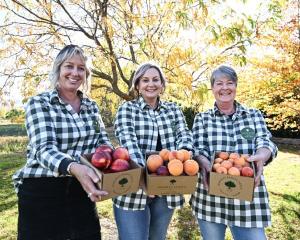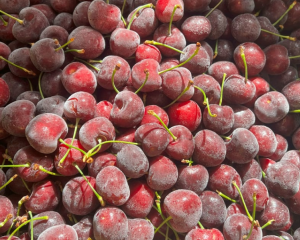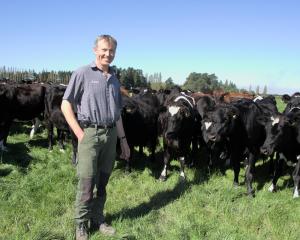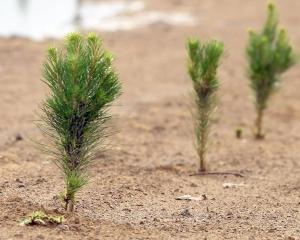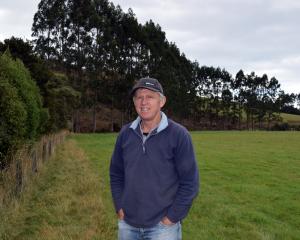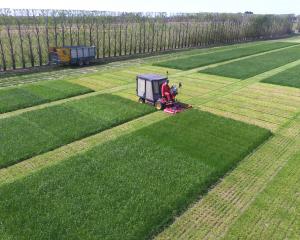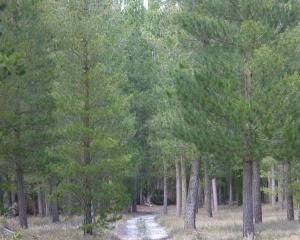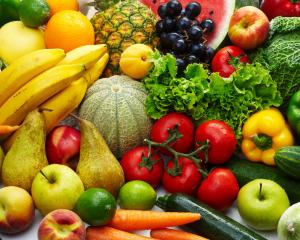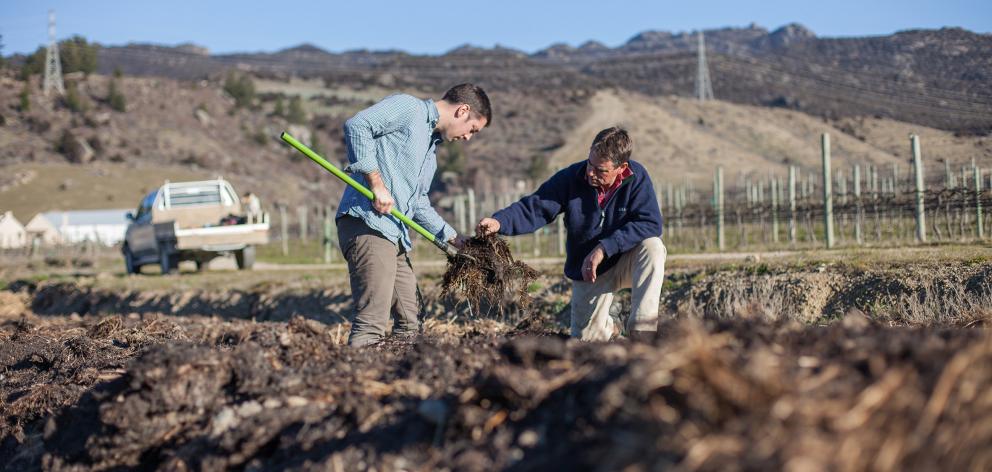
Both were accountants who developed a passion for the wine industry and they now work together at Peregrine Wines.
Lindsay, who lives at Bendigo, is chairman of the business while Fraser is chief executive, responsible for the day-to-day operations of Peregrine on the Gibbston Highway.
It was Lindsay who was the initial driving force behind the move to an organic operation a decade ago.
At the recent New Zealand Wine of the Year awards in Blenheim, Peregrine won champion organic red wine with its Peregrine Pinot Noir 2017 and champion organic white wine for its Peregrine Riesling 2018.
The winery also won the champion open red wine trophy for its Saddleback Pinot Noir 2018.
The organic awards were particularly significant for Peregrine, given the trophy-winning organic red was the winery's first certified organic pinot noir.
Peregrine Wines produced its first vintage in 1998 and its conversion to organics began in 2009. While some of its wines had previously been organic, when the pinot noir became fully organic with the 2017 vintage, the entire Peregrine range was certified as a result.
Central Otago Winegrowers Association (COWA) recently announced the results of a new survey that revealed it as the leading organic wine region in New Zealand.
Members were surveyed after the 2019 harvest, in order to assess the level of certified organic and biodynamic vineyards in the region. The results showed 17% (320ha) of vineyard land was now fully certified in organic and biodynamic production with another 6% (115ha) in the official three-year organic conversion process.
That meant 23% of the region's vineyard land was now being farmed under certified organic or biodynamic practices.
Lindsay McLachlan's foray into the wine industry began as one of the first to plant at Bendigo and Fraser recalled being out spraying during the school holidays.
In 2009 - by then having taken over Peregrine - Lindsay decided to go organic. There were not a lot of operators using organic practices on a large-scale operation at that time; in hindsight, a staged process might have been easier on the team, Fraser said.
It was a ''philosophical decision'', more than anything else at the time, rooted in a desire to care for the environment.
''He's not a halfway house man, it was all in,'' Fraser said.
Being organic was better not only for the land but also for their workers who were no longer dealing with harmful chemicals, he said.
It did require much more proactive management than a conventional system, which tended to be more reactive.
With organic, the approach tended to be preventive, rather than a cure. That required a real shift in thinking for some - although some of the younger members of their team had never used a non-organic approach so it was all they knew. The main tools were sulphur, sunlight and canopy management.
Fraser hoped there would be an increased number of organic and biodynamic wine producers in Central Otago, saying the region - with its naturally dry climate - provided a great environment to operate that way.
From those days as a 14-year-old working on the Bendigo site, Fraser developed a ''bit of a passion'' for the industry.
After studying law and accounting at the University of Otago, he worked for KPMG as an accountant.
But every time he visited his family in Central Otago, it felt like he was ''coming home'' and every time he went home, it felt like he was leaving. As time went on, that feeling gradually became more prevalent.
In 2012, as he was contemplating his next step, his father told him that he wished he had the opportunity to get into the wine industry at a younger age and suggested he ''give it a crack''.
The younger McLachlan still had to earn his stripes, as he gradually took on more responsibility over the years. The pair continued to work together which was both fun and rewarding, he said.
''It doesn't actually feel like work. I think when you find your niche, that's the case,'' he said.
The industry had so much to offer, from the production side - dealing with nature and the challenges of farming - through to the chemistry and art that went into converting good fruit into great wine.
Then there was the aspect of dealing with people in brand, sales and marketing activities. Such diversity meant the role was constantly enjoyable and there was also the opportunity to produce something tangible that people enjoyed.
''I realise I'm really privileged to have the opportunity to do it,'' he said.
When it came to Peregrine's long-term vision, Mr McLachlan said it was more of a quality rather than quantity focus. He and his father were constantly having conversations about doing things ''better rather than bigger''.


